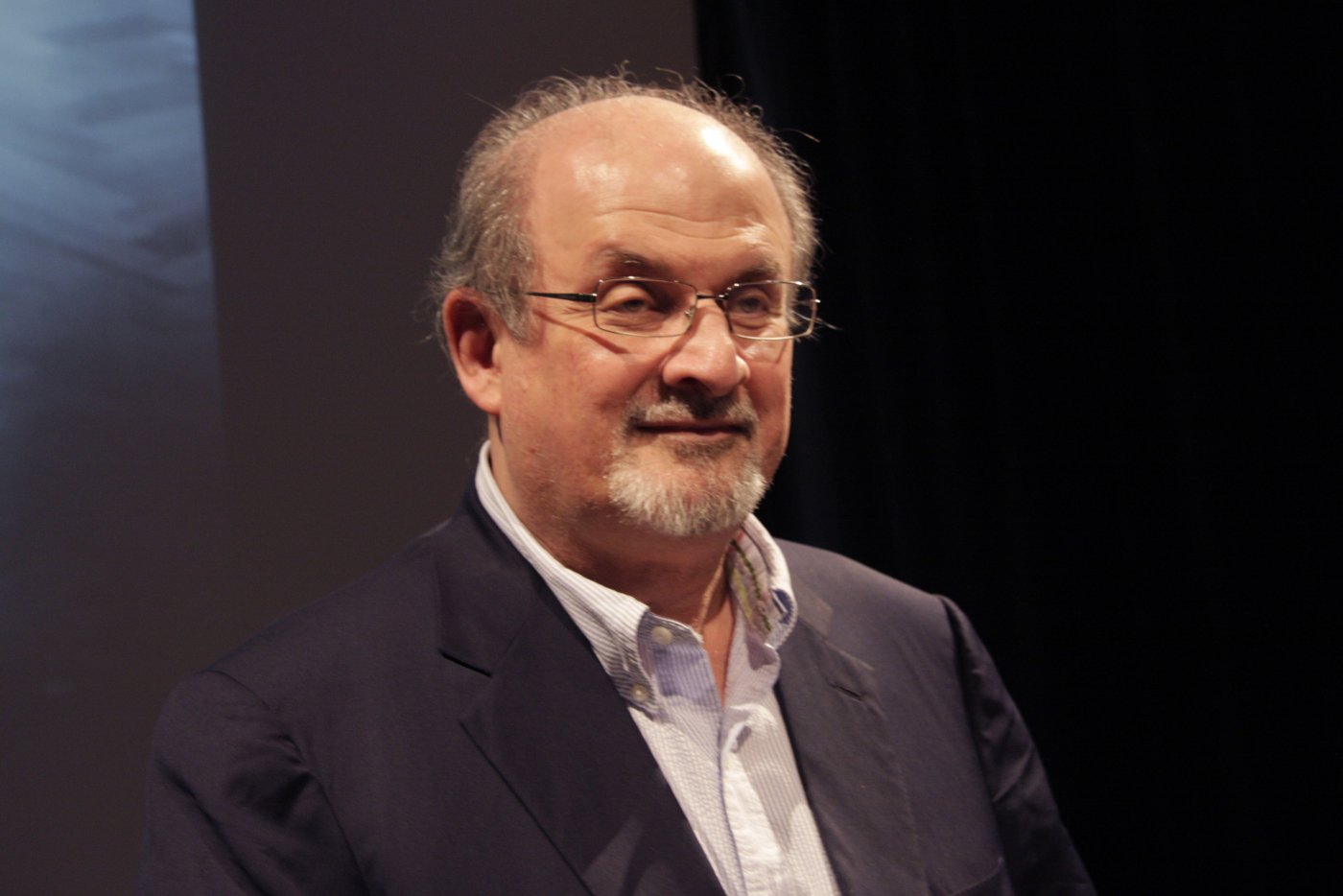The silencing of Salman Rushdie must not succeed
Posted: Sat, 13th Aug 2022 by Stephen Evans
The best way to show solidarity with Salman Rushdie is by making sure his voice continues to be heard, says Stephen Evans.
The attack on Salman Rushdie on Friday was another in a long line of attacks on the very bedrock of liberal democracy: free expression.
It was a shocking attack. One of Britain's most successful authors, violently and repeatedly stabbed as he was taking the stage at a bastion of free speech – the Chautauqua Institution, which describes itself as "a community of artists, educators, thinkers, faith leaders and friends dedicated to exploring the best in humanity".
Ever since the publication of The Satanic Verses in September 1988, Salman Rushdie has come to symbolise the battle between two conflicting ideas: freedom of expression and a medieval concept of blasphemy.
Rushdie's novel, inspired by the life of the Islamic prophet Muhammad, instantly enraged reactionary Muslims who found the book offensive and accused Rushdie of blasphemy. India banned the book just nine days after it was published in the UK. Pakistan and Saudi Arabia swiftly followed suit. In 1989 the Ayatollah Khomeini of Iran issued a 'fatwa' calling on "all valiant Muslims" to kill Rushdie "without delay, so that no one will dare insult the sacred beliefs of Muslims henceforth." The British government placed Rushdie under police protection, and he was forced into hiding.
The events marked a low point for community relations in Britain. British Muslims were poorly served by their self-appointed community leaders. Iqbal Sacranie, a former Secretary General of the Muslim Council of Britain, remarked: "Death, perhaps, is a bit too easy for him, his mind must be tormented for the rest of his life unless he asks for forgiveness to Almighty Allah."
Rushdie resurfaced in the late 1990s after almost ten years of isolation and cautiously resumed more public appearances. Since then, he has lived openly and courageously, refusing to submit. "How to defeat terrorism? Don't be terrorised. Don't let fear rule your life. Even if you are scared," he reasoned.
But the 'Rushdie affair' gave rise to an insidious new stealth blasphemy code, with transgressions punished not by law, but by death, or at least the threat of it. As Rushdie himself identified: "'Respect for religion' has become a code phrase meaning 'fear of religion'. Religions, like all other ideas, deserve criticism, satire, and, yes, our fearless disrespect."
But a string of Islamist atrocities has scared many into submission. Images of Muhammad are routinely censored. Criticism of Islamic practices is branded 'Islamophobic', and anything deemed offensive by fundamentalists is quickly shut down. A climate of self-censorship has emerged.
But Rushdie recognises that we cannot, as individuals or a society, be cowed by violent extremism or afford to place religion off limits for critical examination, literature, art or satire.
Pandering to fundamentalism is not a road to an open, tolerant or peaceful society. The Islamist demands will never be satiated. As the late Christopher Hitchens, a close friend of Rushdie, said: "We cannot possibly adjust enough to please the fanatics, and it is degrading to make the attempt."
We can't match their fanaticism, but we must match their resolve. Citizens of all faiths and beliefs need to stand side by side and demonstrate that we hold as firmly to our core values and freedoms as they hold to their warped extremist ideologies.
And political leaders must show leadership. That means no more half-hearted commitments to free speech. No more panicked pandering to offence takers. And no more victim blaming. Let's never lose sight of the fact that the responsibility for violence lies with those who perpetrate it.
Salman Rushdie once said that the writer's great weapon is the truth and integrity of their voice. The best way to show solidarity with him is by never allowing that voice to be silenced.
Freedom of Expression
Democracy cannot exist without the right to free speech. Join our campaign to protect freedom of expression from religious incursions.








